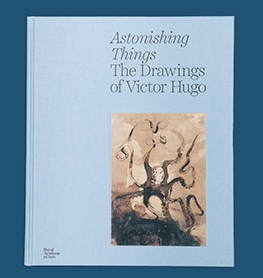Decentring the Museum: Contemporary Art Institutions and Colonial Legacies
ina Möntmann's timely book extends the decolonisation debate to the institutions of contemporary art. In a thoughtfully articulated text, illustrated with pertinent examples of best practice, she argues that to play a crucial role within increasingly diverse societies museums and galleries of contemporary art have a responsibility to 'decentre' their institutions, removing from their collections, exhibition policies and infrastructures a deeply embedded Euro-centric cultural focus with roots in the history of colonialism.
More details
| Material | Hardback |
|---|---|
| Dimensions | 20 x 13cm |
| EAN/ISBN | 9781848225503 |
| No. of Pages | 144 |
| SKU | 12094822 |
Delivery & Returns
UK Delivery
Enjoy free shipping on all UK orders above £50. For orders below £50, shipping is £4.95. We aim to deliver your order within 3-5 working days.
International Delivery
Shipping costs will be calculated at checkout, based on weight and destination.
For all orders outside the UK, VAT is deducted from your order at checkout. Your order may be subject to customs duties, taxes and courier charges. You are responsible for paying these charges. Please check with your local customs office for more information.
Temporary Suspension of Shipping to EU, EEA and Northern Ireland
We have temporarily halted shipping to EU, EEA and Northern Ireland due to the new GPSR regulations which came into effect on December 13, 2024. We are actively working on a solution to resume shipping to these regions as soon as possible. We sincerely apologise for any inconvenience this may cause.
For more information please refer to our Delivery Info and Returns & Refunds pages.
Product story
In this, she argues, they can learn from the example both of anthropological museums (such as the Rautenstrauch-Joest-Museum in Cologne), which are engaged in debates about the colonial histories of their collections, about trauma and repair, and of small-scale art spaces (such as La Colonie, Paris, ANO, Institute of Arts and Knowledge, Accra or Savvy Contemporary, Berlin), which have the flexibility, based on informal infrastructures, to initiate different kinds of conversation and collective knowledge production in collaboration with indigenous or local diasporic communities from the Global South. For the first time, this book identifies the influence that anthropological museums and small art spaces can exert on museums of contemporary art to initiate a process of decentring.












